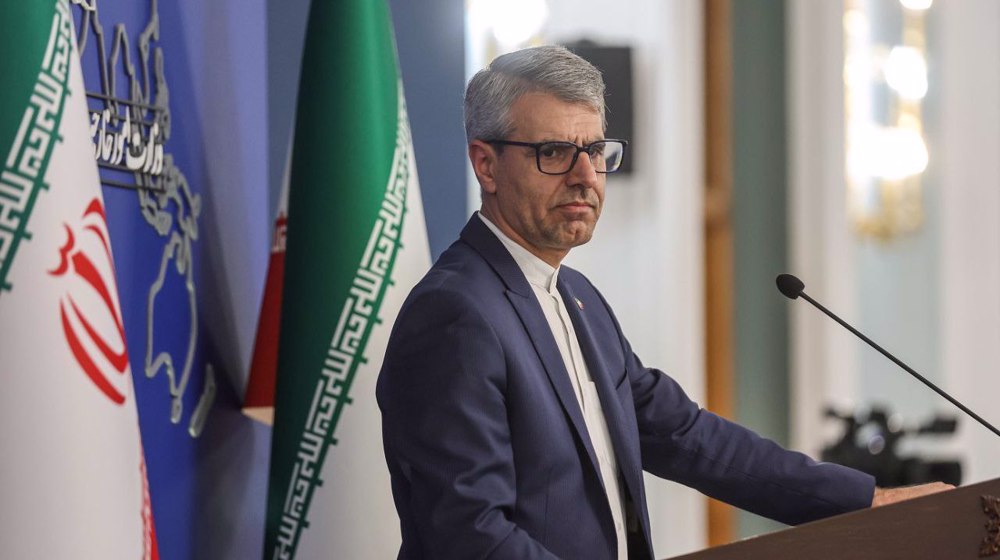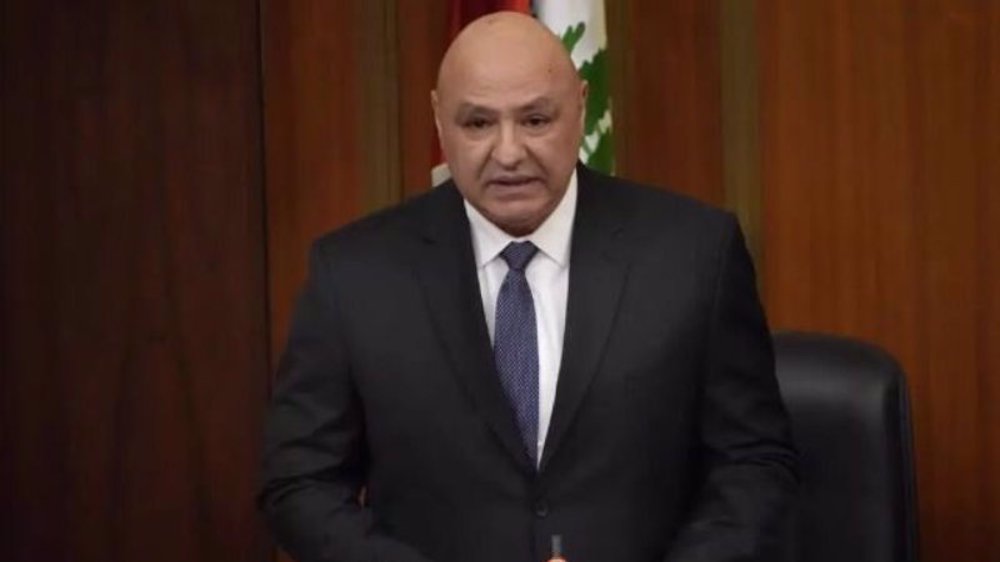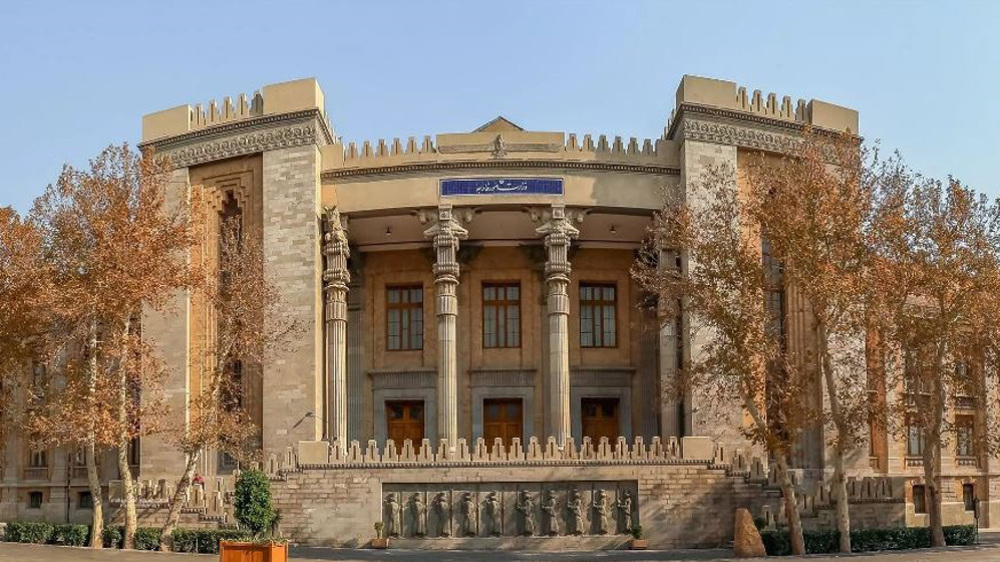US imposes sanctions on Iran's central bank: Trump
US President Donald Trump has imposed sanctions on Iran's central bank in the latest round of Washington’s anti-Iran measures.
Speaking to reporters at the White House on Friday, Trump did not provide any other details about the sanctions which came after the Trump administration accused Iran of being responsible of the attacks on two Saudi Aramco oil facilities on Saturday that knocked out more than half the kingdom’s production.
Trump said they are the highest sanctions ever imposed on a foreign country by the United States. He spoke to reporters at the White House in Washington, DC alongside visiting Australian Prime Minister Scott Morrison.
US Treasury Secretary Steven Mnuchin told reporters at the White House that the bank was Tehran's last source of funds.
In response to the move, Iran's central bank governor Abdolnaser Hemmati described the new sanctions a sign of Washington's inability to exert "leverage."
"The US administration sanctioning the central bank again shows how empty their hands are in finding leverage against Iran," IRNA quoted Hemmati as saying.
Yemen's Houthi fighters have claimed responsibility for the attack on the Saudi oil facilities, but the United States has rejected the claim with Trump saying that Iran appears to be responsible for the strike.
Tehran, however, dismissed the allegation, saying Washington seems to be shifting from a failed campaign of “maximum pressure” to one of “maximum lying” and “deceit” against the Islamic Republic.
On Wednesday, Trump ordered Mnuchin to “substantially” increase economic sanctions on Iran.
“I have just instructed the Secretary of the Treasury to substantially increase Sanctions on the country of Iran!” Trump tweeted without providing any additional details on the move.
Later on Wednesday Trump said that the specifics of sanctions would be made public "over the next 48 hours."
Asked about a possible US war with Iran, Trump said on Friday the United States was always prepared and that a military strike was always a possibility.
However, Trump added that he wants a peaceful solution to the conflict following the weekend oil attacks.
The Trump administration has dialed back war rhetoric against Iran after Foreign Minister Mohammad Javad Zarif raised the prospect of "all-out war” if the United States carried out a possible military strike against the country.
Asked by CNN what the consequence of a US or Saudi military strike on Iran would be, Zarif said: "All-out war."
"We won't blink to defend our territory," Iran's foreign minister emphasized.
On Thursday, Secretary of State Mike Pompeo said the United States prefers a peaceful resolution to the crisis sparked by the attacks on Saudi Arabia’s state-run oil company.
"We'd like a peaceful resolution," Pompeo said in Abu Dhabi, the capital of the United Arab Emirates.
"I hope the Islamic Republic of Iran sees it the same way," he told reporters.
VIDEO | Press TV's news headlines
Gaza death toll 40% higher than recorded, Lancet study estimates
VIDEO | Lebanon elects new president
Scores killed as US, Turkish proxies clash in northern Syria
At least 5 dead as wildfires devour districts across Los Angeles
VIDEO | Press TV's news headlines
Houthi: Israel incapable of downing Yemen’s hypersonic missiles
Inquiry: UK soldiers executed Afghan boys 'younger than 16'












 This makes it easy to access the Press TV website
This makes it easy to access the Press TV website